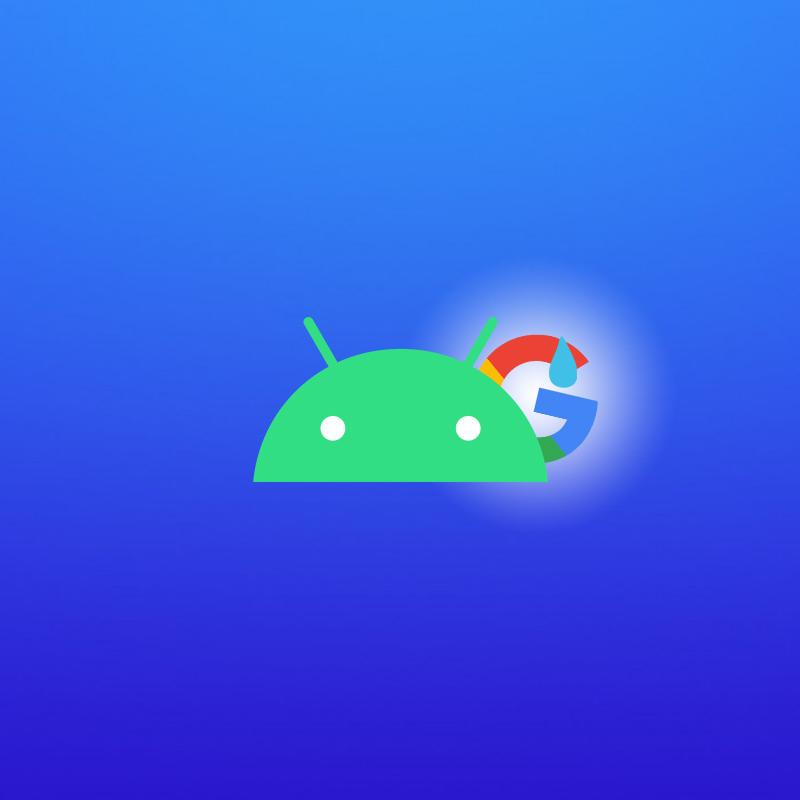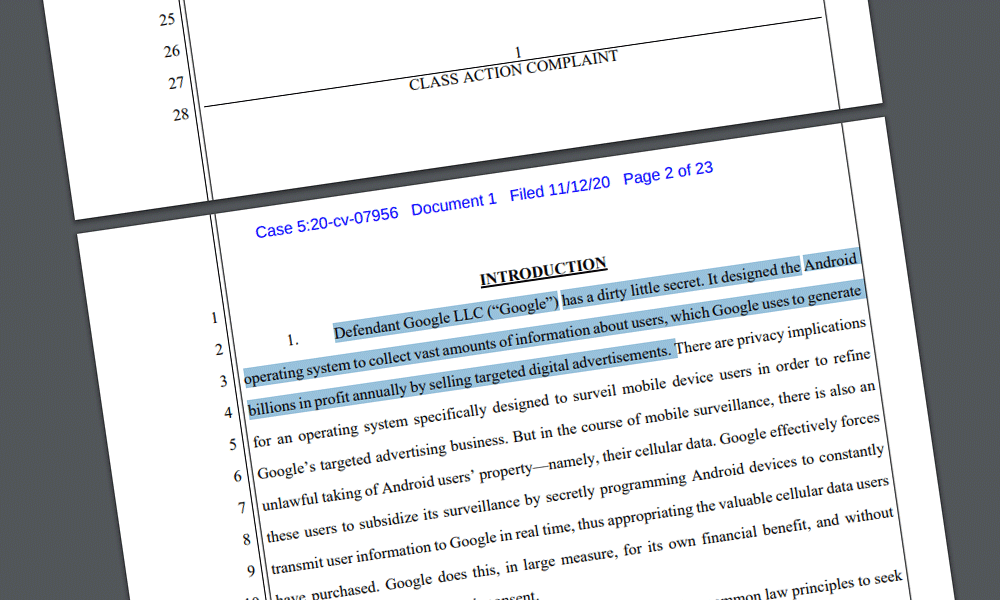
Google is best known as the largest search engine of the web. But its business has gone far beyond that.
While the company's business has spread to many fields in tech, it's still relying on advertisements as its primary source of income. Knowing that anything that happens on the web can be tracked and leave digital footprints, Google has deployed numerous schemes to gather them all.
And that includes putting a lot of tracking abilities on Android, the most popular mobile operating system that it operates.
While this comes as a no surprise that Google has the uppermost power on Android, the search giant was sued for allegedly stealing Android users' cellular data allowances though unapproved, undisclosed transmissions to the web giant's servers.
The lawsuit that was filed in a U.S. federal district court in San Jose on behalf of four plaintiffs based in Illinois, Iowa, and Wisconsin, contends that Google is using Android users' limited cellular data allowances without permission to transmit information about those individuals that's unrelated to their use of Google services.
That the amount of data Android is capable of sending to Google, is more than one hundred megabytes per month, even when users aren't doing anything with their phone.
The complaint claims:
"Google’s misappropriation of Plaintiffs’ cellular data allowances through passive transfers occurs in the background, does not result from Plaintiffs’ direct engagement with Google’s apps and properties on their devices, and happens without Plaintiffs’ consent."
Read: The Many Ways Google Tracks You. Knowing How Invasive It Is Can Help You Protect Your Privacy
It should be noted that people who want to use Android, have to accept four agreements to participate in the Google ecosystem:
- Google's Terms of Service.
- Google's Privacy Policy.
- Managed Google Play Agreement.
- Google Play Terms of Service.
But according to the filing, none of the four agreements disclose that Google can use users' cellular data for background transfers.
In a tested Samsung Galaxy S7 running Android, a signed in Google Account and on default setting, it was found that when left idle and without Wi-Fi connection, the phone sent and received 8.88MB of data, with 94% of those communication occurred between Google and the phone.
Assuming that half of the connection is outgoing, Google would receive about 4.4MB per day, or about 130MB per month.
In the test, when the device is left stationary and with all apps closed, the device transferred data to Google about 16 times per hour, or about 389 times a day,
In the lawsuit, any data sent through Wi-Fi isn't an issue, nor is any data sent through cellular connection in the absence of Wi-Fi, but when the user has chosen to use a network-connected application. What concerns the plaintiffs is the data sent to Google's servers that isn't the result of deliberate interaction with a mobile device.
In other words, the plaintiff concerns how Google is passively using Android's background data via cellular, and to transmit that huge amount of data.
In comparison, an iPhone with the Safari web browser opened in the background, would only transmit a tenth of that amount to Apple, according to the complaint.

Google has in the past explained that when idle, Android can transmit data that include, and not limited to: log files that record network availability, opened apps, and operating system metrics.
In this case, Google choses to spend users' cellular data so it could gather data at all times, rather than delaying the transmission of the data until a Wi-Fi connection was available.
As for the other reason for this practice, is obviously because of Google's business model.
Unlike Apple that controls its entire ecosystem and doesn't really rely on 'selling user data' to advertisers, Google needs as many data from users as possible.
From users online activities, contacts, browsing habits, apps installed and usage, and many more. Google needs all it can gather from users, in order to profile them.
This is also why the complaint charges that Google conducts these undisclosed data transfers for further strengthening its advertising business, by sending "tokens" to identify users for targeted advertising, and preload and targeted ads that generate revenue even if they're never even displayed.
"Users often never view these pre-loaded ads, even though their cellular data was already consumed to download the ads from Google," the legal filing claims. "And because these pre-loads can count as ad impressions, Google is paid for transmitting the ads."
This lawsuit wants to recover the fair market value of the co-opted cellular data and the reasonable value of the cellular data used by Google to extract and deliver information that benefited Google, dating back to whenever Google started this undisclosed practice.